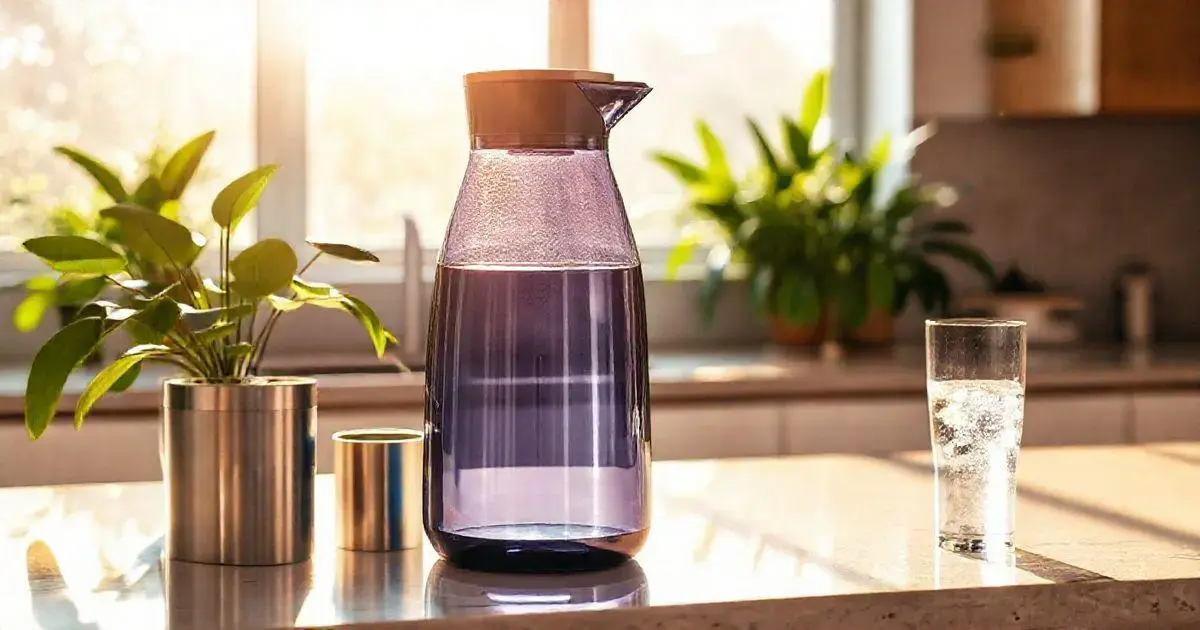Are Water Jugs Really Eco-Friendly?
When it comes to reducing plastic waste and environmental impact, water jugs seem like a sustainable choice. But are they truly as eco-friendly as they appear? In this article, we delve into the facts to determine whether water jugs are a green solution or just another plastic problem in disguise.

The Truth Behind Recycling Claims for Water Jug Packaging
Understanding Recycling Claims in Water Jug Packaging
When it comes to sustainability, the recycling claims associated with water jug packaging are often a key consideration. To truly understand the implications of these claims, it’s essential to delve deeper into the recycling process for water jugs. While many water jug manufacturers boast recyclability, the truth is that not all jugs are easily recyclable. Some materials used in manufacturing water jugs, such as certain plastics, may pose challenges in the recycling process due to their composition.
Step-by-Step Guide:
- Check the Resin Identification Code: Look for the resin identification code on the bottom of the water jug. This code indicates the type of plastic used in the jug’s construction and is crucial in determining its recyclability.
- Consult Local Recycling Guidelines: Different recycling facilities accept specific types of plastics. Verify with your local recycling guidelines whether the water jug material is accepted for recycling in your area.
- Rinse and Remove Caps: Before recycling, rinse the water jug thoroughly to remove any residue. Additionally, remove the caps as they are often made from a different type of plastic and can hinder the recycling process.
- Visit a Recycling Center: If your local curbside recycling program does not accept water jugs, consider taking them to a nearby recycling center that specializes in processing these materials.
- Be Informed: Stay informed about recycling updates and best practices in your region. Understanding the recycling process can help you make informed decisions about the disposal of water jugs.
The Impacts of Misleading Recycling Claims
Misleading recycling claims in water jug packaging can have significant environmental consequences. When consumers believe they are recycling responsibly by disposing of their water jugs, unaware of the actual recyclability of the materials, it can lead to contamination in recycling streams. This contamination can make the recycling process less efficient and may result in entire batches of recyclables being diverted to landfills.
Step-by-Step Guide:
- Research Brand Claims: Before purchasing water jugs based on recycling claims, research the brand’s recycling practices and whether they align with their claims.
- Opt for Highly Recyclable Materials: When selecting water jugs, prioritize those made from highly recyclable materials like PET (Polyethylene Terephthalate) or HDPE (High-Density Polyethylene) to ensure better recyclability.
- Educate Others: Spread awareness about the importance of accurate recycling information to prevent the spread of misleading claims and promote responsible recycling habits within your community.
- Report Misleading Claims: If you encounter water jug brands with misleading recycling claims, consider reporting them to relevant consumer protection agencies to address false advertising practices.
- Support Transparency: Choose to support brands that demonstrate transparency in their recycling processes and provide clear information about the recyclability of their products.

Eco-Friendly Features of Using Water Jugs
Water jugs are an eco-friendly alternative to single-use plastic bottles. By investing in a high-quality water jug, you can significantly reduce your plastic waste output. Many water jugs are made from durable materials like glass or BPA-free plastic, ensuring longevity and reducing the need to constantly replace them. This sustainable choice helps in minimizing environmental impact and promoting a greener lifestyle.
Additionally, using water jugs encourages the consumption of tap water over bottled water, further decreasing the reliance on plastic packaging. Tap water is not only a more eco-friendly option but also more cost-effective in the long run. By opting for a refillable water jug, you contribute to conservation efforts and reduce the carbon footprint associated with plastic production and disposal.
Furthermore, some water jug models come with innovative features like built-in filters that purify tap water, providing clean and safe drinking water without the need for disposable plastic filters. These eco-friendly jugs offer convenience while promoting sustainability, making them a practical choice for environmentally-conscious consumers.
In conclusion, the eco-friendly features of water jugs make them an essential accessory for those looking to adopt a more sustainable lifestyle. By choosing a reusable water jug, you not only reduce plastic waste but also contribute to a healthier planet for future generations.
Comparing Cost Efficiency of Water Jugs
When considering the cost efficiency of water jugs, it is important to compare the initial investment with the long-term savings they offer. While some high-quality water jugs may come with a slightly higher price tag upfront, their durability and reusability make them a cost-effective choice over time.
On the other hand, purchasing single-use plastic water bottles frequently can quickly add up, leading to higher expenses in the long term. By investing in a water jug, you eliminate the need to buy bottled water regularly, saving money and reducing waste simultaneously.
Another aspect to consider is the versatility of water jugs. Many models are designed for multiple uses, such as carrying hot or cold beverages, making them a versatile and economical option for various hydration needs. The cost efficiency of water jugs becomes evident when comparing their long-term value against the continuous purchase of disposable alternatives.
Overall, by choosing a cost-effective water jug, you not only save money in the long run but also contribute to a more sustainable lifestyle by reducing plastic waste and promoting reusable solutions.
Tips for Proper Maintenance of Water Jugs
Proper maintenance of water jugs is essential to ensure their longevity and hygienic use. Follow these tips to keep your water jug in optimal condition:
1. Regular Cleaning:
Thoroughly wash your water jug with warm, soapy water after each use to prevent bacteria buildup and odors. Use a bottle brush to reach tight spots and rinse it properly before refilling.
2. Avoid Staining:
Avoid leaving beverages like coffee or tea in the water jug for extended periods, as they can cause stains. If any discoloration occurs, soak the jug in a mixture of baking soda and water to remove stains effectively.
3. Proper Drying:
After washing, ensure your water jug is completely dry before storing it. Moist environments can facilitate bacterial growth, so allow the jug to air dry upside down to prevent mold or mildew formation.
4. Check Seals and Lids:
Regularly inspect the seals and lids of your water jug for any signs of wear or damage. Damaged seals can compromise the jug’s functionality and lead to leaks, so replace them if necessary to maintain the jug’s efficiency.
5. Store Properly:
Store your water jug in a cool, dry place away from direct sunlight to prevent deterioration of materials and preserve its quality. Avoid exposing the jug to extreme temperatures, as it can affect its performance and durability.
Conclusion
Understanding the recycling claims for water jug packaging is crucial for making informed choices that positively impact our environment. While many companies make claims about recyclability, not all water jugs are created equal. By checking the resin identification code, following local recycling guidelines, and being mindful of the materials used, consumers can enhance their recycling efforts and reduce contamination in waste streams.
Furthermore, water jugs serve as a sustainable alternative to single-use plastic bottles, promoting a healthier lifestyle while minimizing plastic waste. By using high-quality, refillable water jugs, individuals not only lower their expenditures over time but also contribute to conservation efforts and support eco-friendly brands. The long-term benefits of investing in water jugs resonate far beyond personal use and extend to the health of our planet.
As we navigate through the challenges of recycling and sustainability, awareness and education remain key. By sharing valuable information about proper recycling practices and advocating for transparency in claims made by water jug manufacturers, we can cultivate a culture of responsible consumption. Choosing to embrace sustainable solutions like water jugs is a step toward fostering a healthier environment for generations to come.
